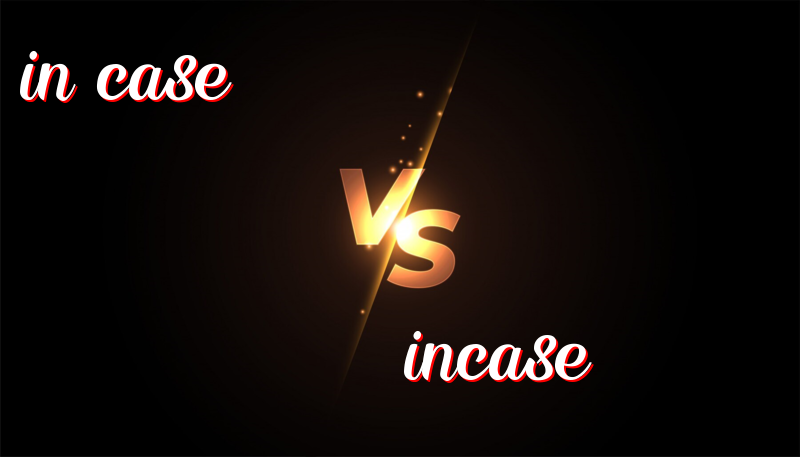Word Mix-Up: Don’t Fall Into the “Incase” Trap!
Difference Between “In Case” and “Incase”
Let’s talk about two phrases that can be confusing: “in case” and “incase.” They may sound alike, but they have different meanings and usages. Let’s learn more about them!
History and Meaning
In Case: This is a phrase made up of two words. We use it when we want to be ready for something that might happen.
Incase: This is not a real word in English. Sometimes, people write it by mistake when they mean “in case.”
How to Use Them
In Case: Use “in case” to talk about something that could happen in the future. It shows being ready or prepared.
- Take an umbrella in case it rains.
- Let’s pack some snacks in case we get hungry.
- Bring a sweater in case it gets cold at night.
- I’ll write it down in case I forget.
- Call me in case you need help.
Incase: This is not used in English. Always use “in case” as two separate words.
- There is no correct sentence with “incase.” Remember, it’s not a word.
- If you see “incase,” change it to “in case” to be correct.
- Always double-check that you use two words: “in” and “case.”
- Remember: “In case” is prepared; “incase” is an error.
- Think of in case as two words: in and case. That’s the right way!
Trick to Remember the Difference
Think of “in case” as putting something inside a case to keep it safe. Always keep “in” and “case” separate, like two different items.
Summary
Use “in case” when you want to talk about being ready for something that might happen. Do not use “incase” because it is not correct in English.

Leave a Reply
You must be logged in to post a comment.